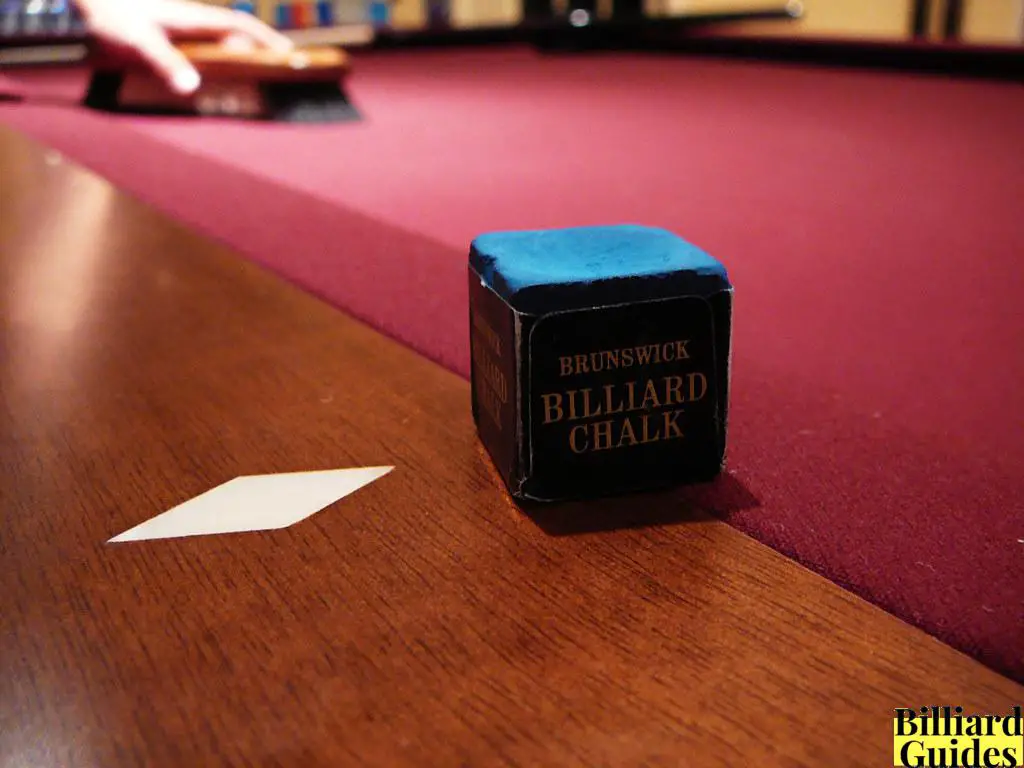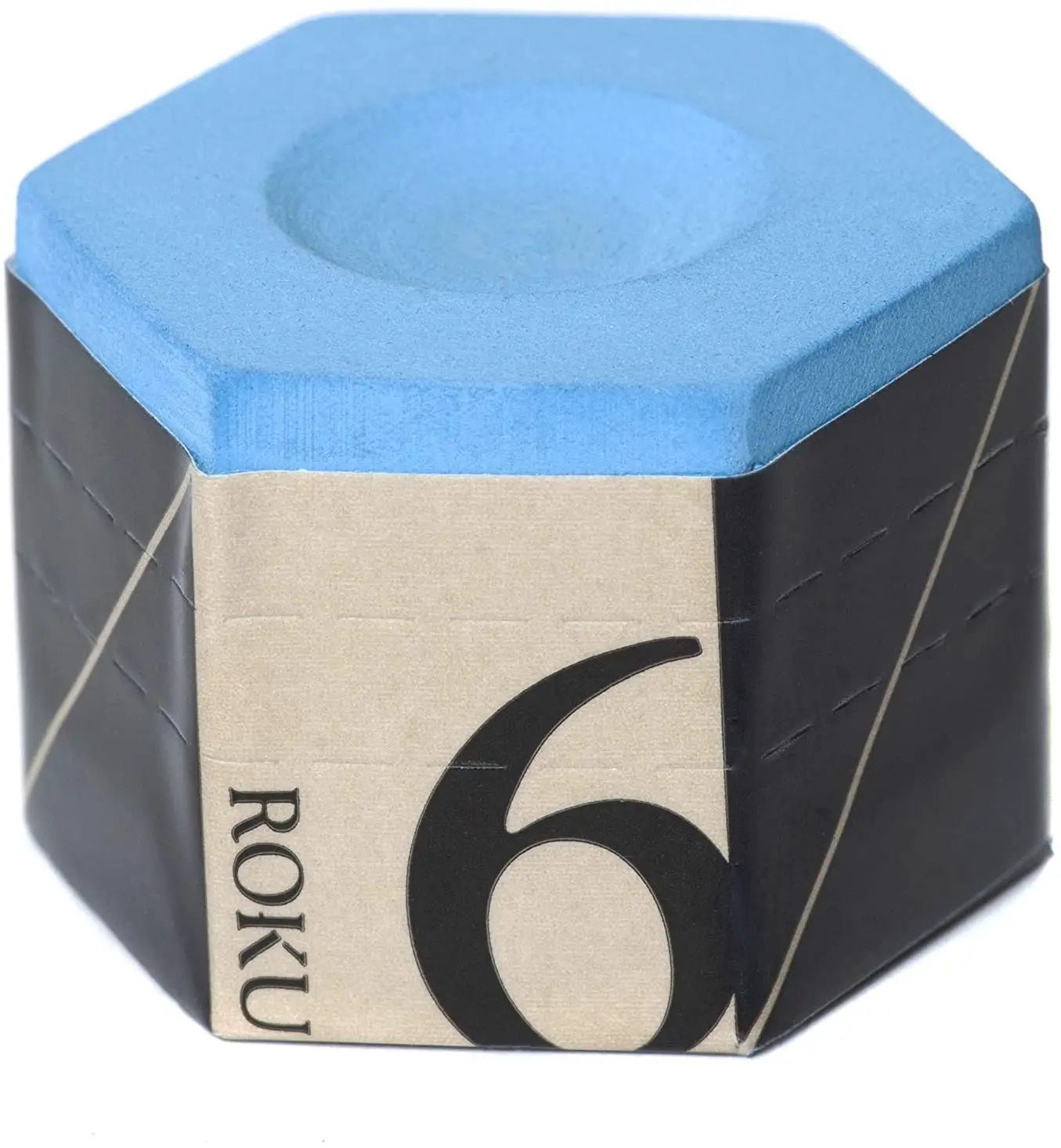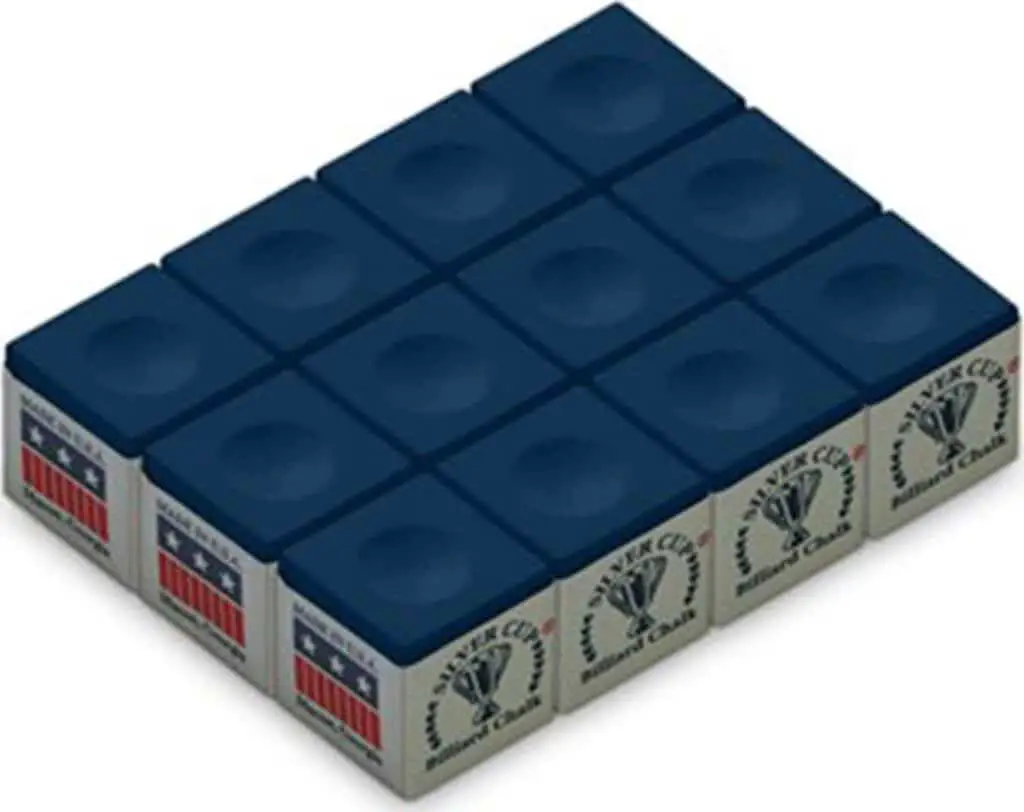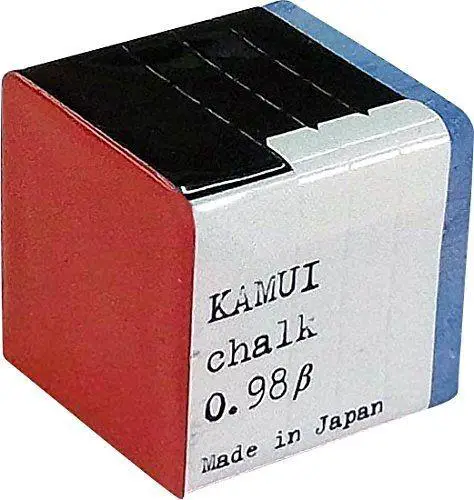The pool is a game of skill, not luck. To win at the pool, you need to know how to grip your cue and the value of chalk properly. With this on your hands, you will be able to maintain control over the cue ball for more shots in a row than if it were dry.
Chalk also helps reduce slippage between the surface of your hand and the cue stick by creating a layer that fills any gaps or irregularities. This prevents errors in judgment when shooting because it gives you an even surface to press against with less chance of slipping off course.
What is chalk and what does it do?

Chalk is a fine powder that acts as an abrasive. It reduces slippage between hands and the cue stick by creating a layer that fills any gaps or irregularities to give you more control over your shot with less chance of error in judgment.
How do I chalk my pool cue?
Use one hand on top of the other, so the thumbs are touching each other, then grip the butt end of the shaft using both palms and slide it up from tip to ferrule while applying pressure so that there’s always some contact between fleshy parts of your fingers and handle all along its length. This will coat every part of the shaft evenly with just enough friction-fighting material to make game-time much more enjoyable.
What should I avoid when chalking my pool cue?
Don’t forget always to chalk your cue before you play! If you happen to forget, don’t try to use a few dabs of chalk in place of the full-length treatment; it’s not worth risking another player’s safety for an extra shot or two.
Best Cue Chalk

How do I know if my pool stick is properly chalked?
Look at the end of the shaft (the ferrule) and ensure no white streaks on it from where excess chalk has been wiped off. It should be evenly coated with a thin layer, which will gradually wear away as you shoot more balls into pockets and around rails during game time.
The best way to judge if the chalk job has been done correctly is to see what’s happening with your hands after you grip the cue. Suppose there are still any white bits on the fleshy parts of your fingers. In that case, it means that excess material was used when chalking, and some will be left behind as a result – this makes for more inferior contact between hand and stick and reduces overall control over shots.
What happens without adequate chalk?
Without enough chalk applied evenly across all surfaces, friction becomes an issue because gaps in coverage caused more slippage than would usually happen under normal conditions.
We could say that there’s not enough resistance between skin and object surface (i.e., pool stick) to allow for easy movement or ‘grip.’ This leads to errors in judgment and difficulty with precision when shooting, affecting the outcome of a game.
Read More – Best Pool Cue Chalk
What are some benefits of chalk?

Chalking your cue stick can help you maintain control over shots because it reduces slippage between hand and cue. It also helps reduce mistakes by giving you an even surface for pressing against when shooting so that there’s less chance of slipping off course; as such, its long-term use will make for more precise shots on average than if no chalks were used at all.
Some other advantages include: better grip under slippery conditions or sweaty hands, reduced risk from dirt or debris interfering with play (e.g., dust), improved contact between skin and object surfaces due to optimal friction levels across the entire surface area, and the ability to compensate for irregularities in cue stick shape.
Why is chalk important in the pool?
Chalk is vital in the pool because, without it, friction becomes an issue. This leads to errors in judgment and difficulty with precision when shooting, affecting the outcome of a game.
Chalking your cue stick will help you maintain control over shots, reduce mistakes by giving you an even surface for pressing against so there’s less chance of slipping off course, better grip under slippery conditions or sweaty hands, reduced risk from dirt or debris interfering with play (e.g., dust), improved contact between skin and object surfaces due to optimal friction levels across the entire surface area, ability to compensate for irregularities in cue stick shape.
How often should you chalk your cue?

It would be best if you chalked your cue before every game and after each time you shoot. The chalk will wear off, so make sure to apply more as needed on the ferrule, shaft, end of shaft (ferrule), and handle. If it isn’t enough for a person to notice, that is good because too much can cause errors in judgment or difficulty with precision when shooting, affecting who wins the game.
What can you use instead of pool chalk?
Some people use talcum powder instead of chalk. Talcum powder has the same effect as pool chalk does and is cheaper than buying a container or stick of chalk. You can also apply baby powder, but some believe it doesn’t provide enough friction to help maintain control over shots, reduce mistakes by giving even surface for pressing against so there’s less chance of slipping off course, better grip under slippery conditions, or sweaty hands, reduced risk from dirt or debris interfering with play (e.g., dust), improved contact between skin and object surfaces due to optimal friction levels across the entire surface area, ability to compensate for irregularities in cue stick shape.
Another option would be cornstarch because it works similarly without leaving residue on your hands which could cause errors.
Can you use regular chalk on the Pool stick?
You cannot use regular chalk on the Pool stick, and it may have a different effect than what you are looking for.
Some people believe that if they use too much white material onto their object surface (cue), there is an increased risk of errors in judgment or difficulty with precision when shooting, which could affect who wins the game.
It can also cause friction to become an issue and lead to problems where gripping becomes difficult due to excess material being applied. This means that your shots will be less accurate because you don’t want too much contact between fleshy parts of hands and handle all along the length of a pool cue.
Does the brand of chalk really make that much difference?
Some people believe that any chalk type will do as long as it is white and can adhere to the object.
Others say that different types have different effects; some are better at providing a sure grip for shots than others or offer more surface friction so your hands won’t slip off course too easily when pressing against them. Some players also find one brand has less residue on their pool cue after use, which means they don’t need to clean it before storing away (e.g., storage tube).
The chalk in a pool cue is used to provide a better and more consistent grip for the player’s hand, which can be helpful when you are shooting at your opponent. It also helps to reduce slipping on slippery surfaces or if your hands are sweaty, giving you greater control over shots. It may not seem like much, but proper care of your cue will help it last longer while providing the consistency that could mean victory!
Does Chalk Color Matter? Why its usually blue?
They typically come in blue, but other options are worth considering, such as pink, red, black, yellow, and green.
Colors vary from brand to brand, but usually, they will provide more than one option, so pick what you think looks best! It doesn’t seem to matter much unless someone has allergies or sensitivity issues where they can’t handle certain materials touching their skin (e.g., latex).
Should You Buy Cheap or Expensive one?
The type of chalk you buy may be a personal preference, but some people prefer to pay more for better quality.
Cheap brands can still work just as well and last the same amount of time, so if cost is your main concern, it’s not worth paying extra money!
What is the usual size of pool chalk?
They are 1 inch in length and width and solid, cylindrical objects. Despite this being the most popular size for pool players to use during professional championships because it’s what they’re used to using on tour, not all manufacturers make their chalks this way.
Conclusion
In conclusion, chalks are needed in Pool games because they allow players more controlled movements on their sticks and a firmer grip. This is important because, without it, friction will be an issue that can lead to errors in judgment and difficulty with precision when shooting, which may affect the outcome of a game.